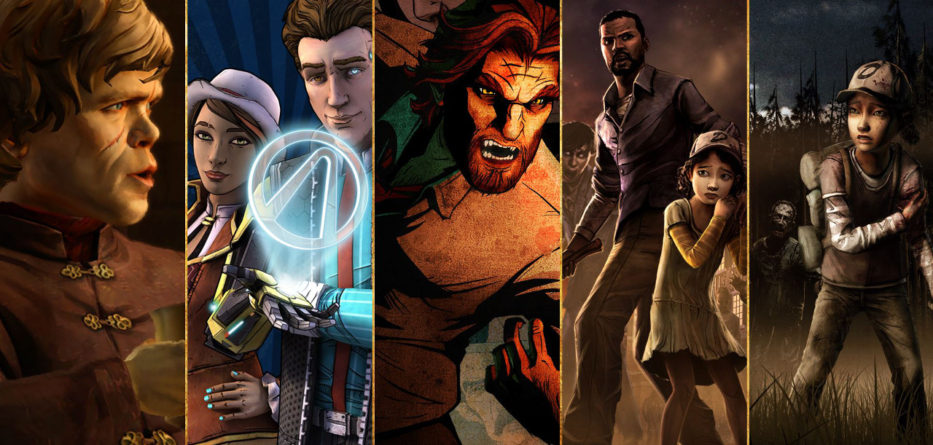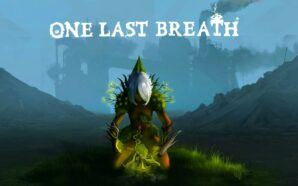Telltale. Telltale, Telltale, Telltale. My oh my, what a developer you are. It still baffles me to this day how incredibly incapable you are at evolving past The Walking Dead. You haven’t even bothered to change the art style, let alone the gameplay and tone of your games. It amazes me that people can still play Telltale games without feeling as if something might seem familiar. It has gotten to the point where Minecraft feels almost identical to The Walking Dead in its tone, and now the first episode of Batman: A Telltale Games Series has released, and lo and behold it’s the exact same game as the last few to churn out of the overworked Telltale machine, so I figured I would give my thoughts on every Telltale game from The Walking Dead onward to try and figure out where exactly the decline began. So here we go!
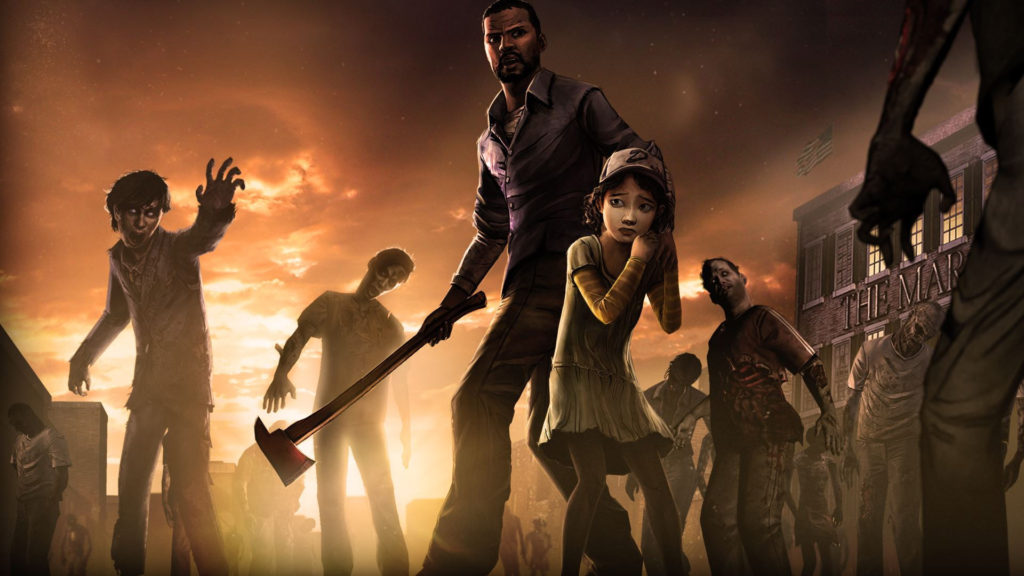
Going into 2012 there was a certain television program on everyone’s lips: The Walking Dead. The zombie horror/drama starring Andrew Lincoln, Jon Bernthal, and many others, proved to be one of the most successful and universally loved shows of its time. It managed to appeal to everyone; the zombie action kept the easy viewers happy, and those who look for something more than mindless violence were treated with some solidly developed characters and drama. Needless to say, it was pretty great, and it has stayed at a level of good quality ever since (excluding Season 2. Screw you, Season 2), so an expansion of this rich and diverse universe (in other words, how people other than Rick’s group manage to get killed in a colourful variety of ways), was inevitable. And thus arrived the wonderful depression simulation that is Telltale’s The Walking Dead. (Editor – It’s set in the comic universe, but let’s be honest, that doesn’t matter.)
I’m going to come out and say it: Telltale’s The Walking Dead is my favourite video game to date. I couldn’t say for sure if there is a certain bias to this opinion, but whenever I think of my favourite video games, this one is always among the first to cross my mind. It isn’t easy to describe why I love this game; I suppose I could talk about how the soundtrack never fails to bring about a tidal wave of emotions whenever I hear it, how the art style is both cartoonishly charming, but also brutally human all at once, or how there isn’t a single simple or ineffectual choice to make in the entire 12-hour runtime… but the one thing I can say has The Walking Dead stand out amongst the other narrative, choice-driven games out there is the characters.
I have always had a huge respect and admiration for those who can take, let’s face it, drawings and create very real, very human characters out of them, hence why a lot of my favourite TV shows are cartoons and animations. Perhaps this is why, for me at least, The Walking Dead contains some of the most interesting, well-developed, well-written, well-acted people I have ever seen in any form of media. Or perhaps that’s the case regardless of bias. The relationships between these characters and the way in which the player can influence them are not only 100% believable, but also beautiful to observe as they evolve over the course of all five episodes. Each character has their own motivations, goals and flaws, which typically cause conflict at every turn, crafting these sketches on a computer into human beings I could expect living their day-to-day lives before the end of those days came upon them in the form of flesh-eating monsters.
It seemed many others agreed with me upon The Walking Dead‘s release, and it became a worldwide critical and commercial success, collecting a multitude of Game Of The Year awards, as well as many a green bill from a wide array of fans, myself included, waiting in eager anticipation to see what Telltale could bring to the table next. But alas, with the release ofThe Wolf Among Us, the beginning of the abrupt end to the quality seen in The Walking Dead sadly began.
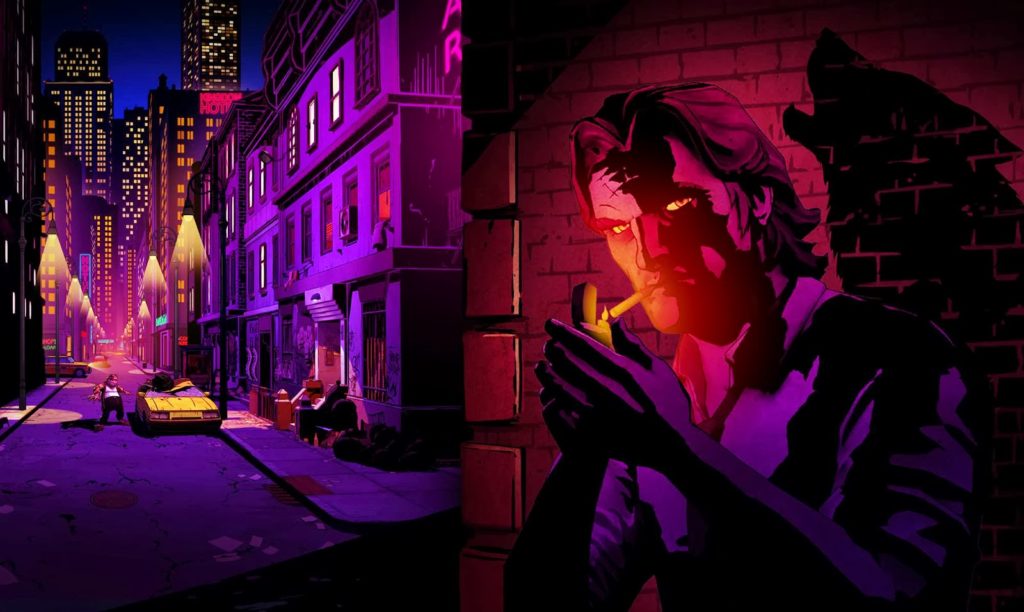
The Wolf Among Us is a good game, let me make that point perfectly clear. It is likely the best post-Walking-Dead game made by Telltale, mostly based on its ability to seamlessly weave a large number of fantastical characters from classic fairytales into a harsh, depressing, believable world. Granted, the concept derives from a previously-written graphic novel series, but the game has enough achievements to become its own unique product. It was disturbing, gritty, but still somewhat charming, and I did have a lot of fun with it. However, while The Walking Dead saw a fantastic run of five episodes with no real drop in quality, The Wolf Among Us does have some pacing issues at times, and some set pieces were downright unbelievable and absurd. Throw in a handful of chugging framerates, an ounce of texture glitches and a sprinkle of dodgy voiceover work, and you have yourself a recipe for a slightly rushed and slightly less polished game than its predecessor. This may be because Telltale were attempting to capitalise upon the incredible amount of public and critical acclaim they had received in as fast a manner as possible, but I believe it was due to their efforts on another, bigger, production: The Walking Dead: Season Two.
Nowadays, I am typically one to avoid “hype trains”. I enjoy being mildly excited for games and films, but my past has become a culmination of disappointment. It started with FIFA Street and it, hopefully, ended with The Jungle Book (2016). In 2013, games such as Watch_Dogs and Destiny were making the rounds (and don’t get me wrong, I was both excited and inevitably disappointed in both) but the one game I was truly stoked for was the second instalment in Telltale’s The Walking Dead series, in which Clementine, the endearing and typically vulnerable little girl from the first game, is the main playable protagonist. We went in expecting a stronger, more assertive Clem, hardened by the apocalypse, and the game certainly delivered that, but perhaps too well. Playing as a 10-year-old girl in a group of mostly adults seems like a fairly interesting dynamic, in which the decisions you make may differ to the style of those in the season prior. However, despite being surrounded by people much more qualified to be making huge decisions that affect everyone, you still have sections where Clementine appears as if she is almost in charge of the squad. The characters in the game hold you responsible for certain choices that they really should have made themselves. The game as a whole is quite good, but that aforementioned issue, among some other equally distracting ones, really made this game very disappointing, especially since its predecessor did such a fantastic job in comparison. I feel rather alone in my opinion of this one, perhaps this is purely a personal thing, but nevertheless by this point, Telltale’s works were still at least capable of being differentiated from each other.
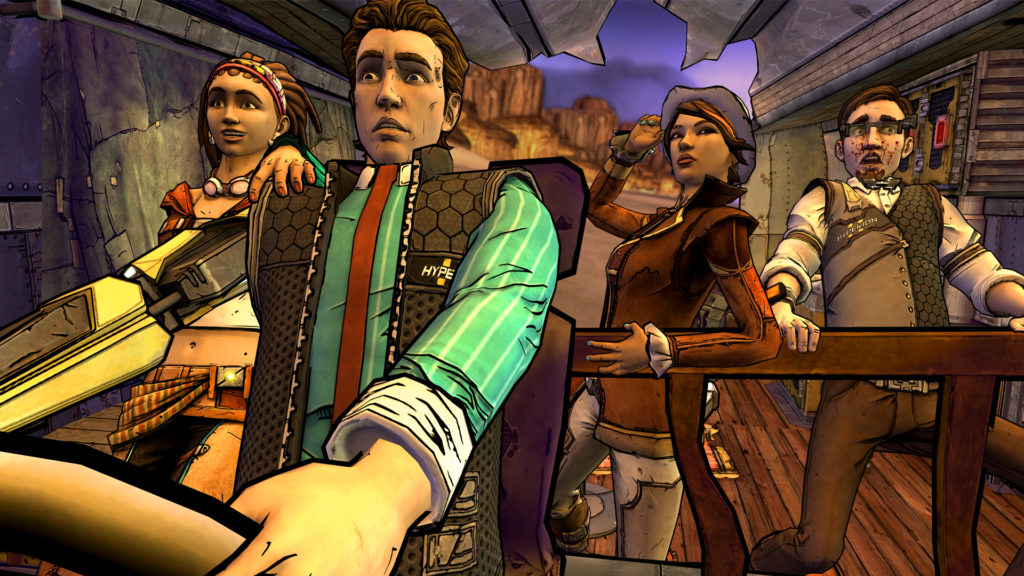
Tales From The Borderlands and Game of Thrones began within a week of each other (if you weren’t convinced Telltale had too hefty a workload, there’s your proof) and one was quite clearly more suited to the Telltale formula than the other, which meant that ultimately the latter was better. Tales is probably my joint second favourite Telltale production, on par with The Wolf Among Us, and yet it felt quite rushed and unpolished at times, as well as one major, possibly subjective, flaw: it’s too much like a movie, and this became a problem from The Walking Dead: Season Two onwards.
One of my favourite aspects of Walking Dead’s first season was that you would play it in different ways, and not just based on the choices you make. During the game, there was sometimes segments where you were able to walk around and even have lengthy conversations with the various members of your group. This gave the player an opportunity to learn more about these characters, be it their occupations, future plans, and many other topics. However, if you weren’t interested in that sort of thing then you were able to go directly to whatever triggered the next segment of the game. For example, during the section at Hershel’s farm, you are told that Shaun needs help working on the fence, but, once you’re given freedom to move around, the game encourages you to talk to a whole host of characters you had only just met. By all means, you could choose to go straight to Shaun and progress the story, but through speaking to Katjaa and Clem, you discover that Clem is in first grade and that she finds the classes incredibly easy, which suggests that whilst she is just a child that needs protection at this point in time, she is also very intelligent for her age and can commit to tasks that others her age would simply not be capable of doing. In one very simple passing of words, Clem’s character becomes much more interesting and may even affect the choices you make throughout the remaining 10+ hours of the game. And again, that could all be missed if you simply want to play the game like a movie.
In almost every game after that, this ability is severely cut down to maybe one, even two if they were feeling adventurous that day, finite segments of the entire five (or six) episodes. It’s an issue with Tales too, and it really shouldn’t be. It’s like making the next Metal Gear Solid into a mandatory stealth by removing the ability to be spotted. Doesn’t make sense? Precisely.
(Quick note: if you enjoy games that are similar to movies in that sense, then that’s totally fine. It just infuriates me that people like myself are now unable to play proper Telltale video games and that mechanic being lost no longer qualifies Telltale artistically.)
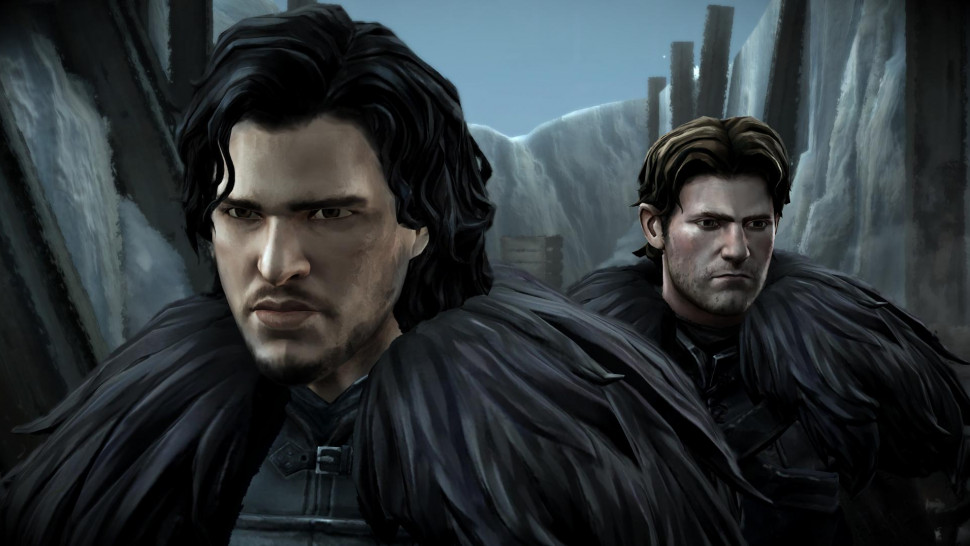
However, whilst Tales was an intentionally hilarious experience with few problems, Game of Thrones was a culmination of problems with few merits. As a consistent viewer of the television series, I was fairly excited to see what Telltale could do with this property; it seemed right up their alley. Unfortunately, this game falls flat very fast and very hard. Certain characters you meet are from the show, such as Ramsay Snow, Margaery Tyrell and Tyrion Lannister, but there is no tension behind what happens to these characters as you know exactly what’s in store for them. What’s that? Tyrion wants to help your character succeed? Best hope you forgot that one famous episode where everything goes tits-up for Tyrion happened because otherwise, that part of the story will be super predictable. Say that again? You’re given the choice to slit Ramsey’s throat or let him live? Better hope you forgot he’s not dead by this point in the story because otherwise, that choice has absolutely zero weight! I’ll be honest, I haven’t finished this game. I stopped at Episode 4 when one of the main characters was killed off, at which point I realised that I didn’t care about any of the characters, especially not that one, and that meant I couldn’t be arsed sinking an additional four hours into this empty shell of a thing.
And now we’re onto the point where my respect for this potentially phenomenal developer dropped to the lowest it has ever been for me: Minecraft fucking Story Mode. The whole damn concept is an oxymoron, which is why I was so unbelievably intrigued by this project. So, a few months after it was released, I gave it a crack aaaaaaaaaand it was pretty good. Great even, but unfortunately I can only praise the first episode because the rest is garbage. The first of the four episodes that make up the main story is lighthearted and fun with charming characters who would interact in a very natural-feeling and entertaining way, and the more tense and character-driven moments feel much more believable as a result. The action scenes are silly and even downright absurd, the way a Minecraft game should be, and things were looking up. That is until someone remembered to refuel our old friend the Telltale machine, and the game became super serious with real stakes and gritty realism.
In a fucking Minecraft game. Seriously, that doesn’t need explaining.
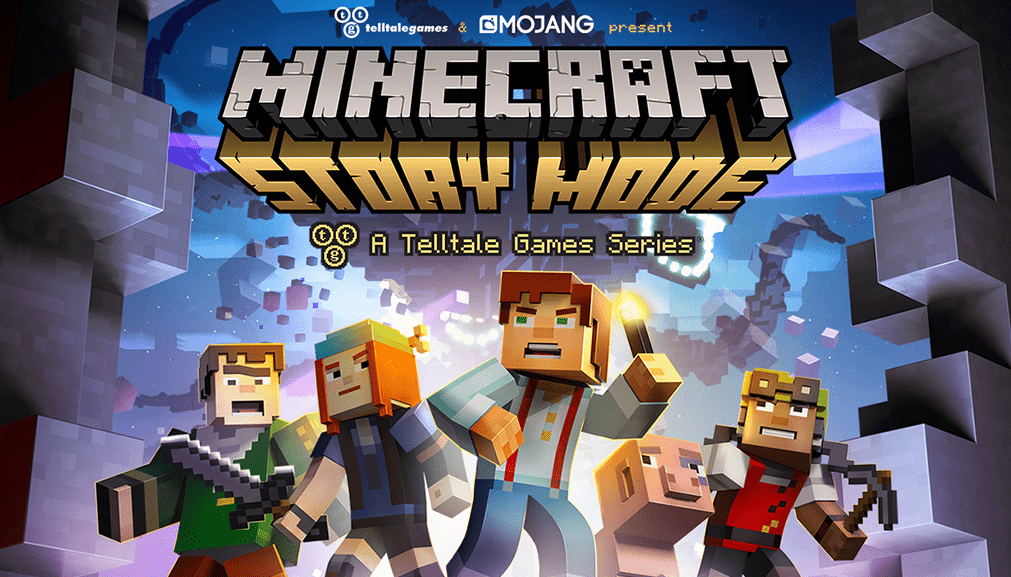
And there we have it. I hope my arguments didn’t sound too repetitive, but if that was the case then blame Telltale because their games are so damn similar I can’t help it. I suppose I could talk about that Walking Dead: Michonne miniseries, but that was so bland and uninteresting that I would just be reiterating upon previous points. So will Batman turn the tide, change the game, switch up the play entirely? In my opinion, absolutely not. Then again, I am open to being surprised.
So go on, Telltale.
Surprise me.
Many thanks,
Ali Ward.
Disclaimer: The following article is almost solely an opinion piece. Any views expressed in this article are that of the author and I do not mean to suggest my opinions are fact at any time. You can agree, you can disagree, I really do not care.




